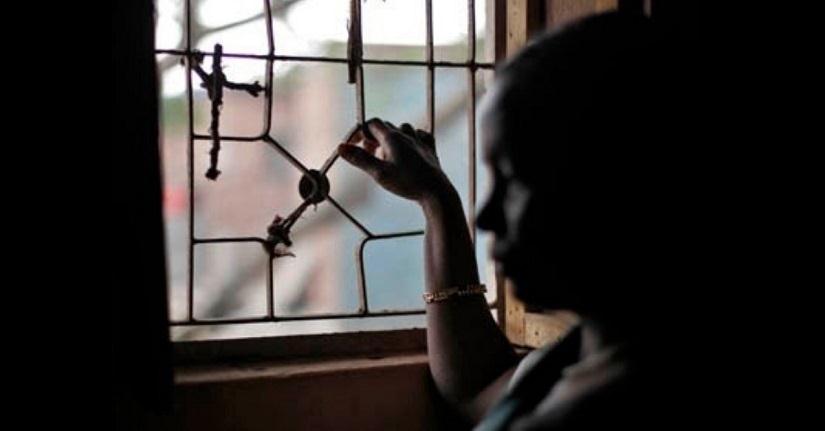Lockdown violence fears grow
Those who were already living in abusive circumstances will likely face “more extreme violence, and can no longer escape by going to work or seeing friends” during the lockdown period.
JANA-MARI SMITH
WINDHOEK
A surge in domestic violence cases fuelled by anxiety over health and financial security could be the next consequence of the coronavirus pandemic and the stay-at-home rules meant to keep Namibians safe from infection.
Veronica Theron, technical advisor in the Office of the First Lady, said during times of crisis, the risk of gender-based violence (GBV) escalates.
“We know GBV is rooted in power, anger and control. Right now, people may experience a lack of control over their lives.”
Theron said those who were already living in abusive circumstances will likely face “more extreme violence, and can no longer escape by going to work or seeing friends”.
Opportunity for abuse
Theron cautioned that although social distancing guidelines are crucial, “we should also recognise that it provides an opportunity for abusers to unleash more violence”.
Apart from escalating physical abuse, and fewer options to leave the house during turbulent times, the pandemic could push many vulnerable women into a deeper economic dependency on abusive partners, she added.
Economic dependency has been cited as a key barrier to fleeing violent relationships.
Theron urged the community to be vigilant about the safety of friends and family and to intervene before the violence escalates.
Global concerns
Globally, similar concerns have been raised.
In Italy, officials recently warned that a sharp fall in official domestic violence reports to the police and other helplines does not necessarily indicate a decrease in domestic abuse incidents.
A parliamentary committee into violence against women warned that the trend could instead signal that “victims of violence risk being even more exposed to control and aggression by a partner who mistreats them”.
Moreover, social distancing can lead to deadly isolation from help.
Namibian police spokesperson, Deputy Commissioner Kauna Shikwambi, this week said she hopes the ban on alcohol will lead to a decline in domestic abuse cases.
Alcohol is frequently linked to violence in Namibia, she said, and the police have since the lockdown seen a slight decline in reported cases of GBV as well as other offences such as housebreakings and car crashes.
Between 21 and 27 March, 44 GBV cases were reported, compared to 39 between 28 March and 8 April, she said.
Clinical psychologist Dr Shaun Whittaker said the lockdown is also a chance for families to spend quality time together and to get to know each other all over again. “It could be an opportunity for renewal.”
Numbers to call:
Namibian police 10111
City Police 061 320 320
Lifeline/Childline 116, 106 and 232221 (crisis lines are open from 8:00 to 20:00)
Regain Trust 081 703 3203
Bel Esprit Mental Health Hospital 083 330 0945
WINDHOEK
A surge in domestic violence cases fuelled by anxiety over health and financial security could be the next consequence of the coronavirus pandemic and the stay-at-home rules meant to keep Namibians safe from infection.
Veronica Theron, technical advisor in the Office of the First Lady, said during times of crisis, the risk of gender-based violence (GBV) escalates.
“We know GBV is rooted in power, anger and control. Right now, people may experience a lack of control over their lives.”
Theron said those who were already living in abusive circumstances will likely face “more extreme violence, and can no longer escape by going to work or seeing friends”.
Opportunity for abuse
Theron cautioned that although social distancing guidelines are crucial, “we should also recognise that it provides an opportunity for abusers to unleash more violence”.
Apart from escalating physical abuse, and fewer options to leave the house during turbulent times, the pandemic could push many vulnerable women into a deeper economic dependency on abusive partners, she added.
Economic dependency has been cited as a key barrier to fleeing violent relationships.
Theron urged the community to be vigilant about the safety of friends and family and to intervene before the violence escalates.
Global concerns
Globally, similar concerns have been raised.
In Italy, officials recently warned that a sharp fall in official domestic violence reports to the police and other helplines does not necessarily indicate a decrease in domestic abuse incidents.
A parliamentary committee into violence against women warned that the trend could instead signal that “victims of violence risk being even more exposed to control and aggression by a partner who mistreats them”.
Moreover, social distancing can lead to deadly isolation from help.
Namibian police spokesperson, Deputy Commissioner Kauna Shikwambi, this week said she hopes the ban on alcohol will lead to a decline in domestic abuse cases.
Alcohol is frequently linked to violence in Namibia, she said, and the police have since the lockdown seen a slight decline in reported cases of GBV as well as other offences such as housebreakings and car crashes.
Between 21 and 27 March, 44 GBV cases were reported, compared to 39 between 28 March and 8 April, she said.
Clinical psychologist Dr Shaun Whittaker said the lockdown is also a chance for families to spend quality time together and to get to know each other all over again. “It could be an opportunity for renewal.”
Numbers to call:
Namibian police 10111
City Police 061 320 320
Lifeline/Childline 116, 106 and 232221 (crisis lines are open from 8:00 to 20:00)
Regain Trust 081 703 3203
Bel Esprit Mental Health Hospital 083 330 0945




Comments
Namibian Sun
No comments have been left on this article